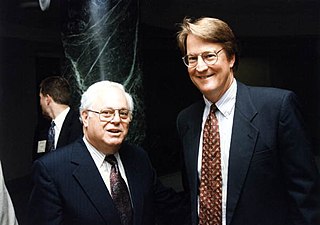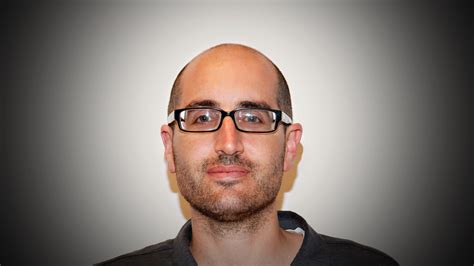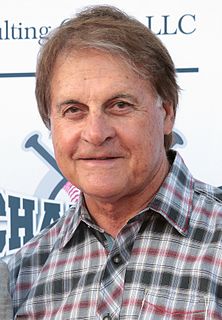A Quote by Ronald Reagan
In case anybody asks you about my position on capital punishment, you can tell them I favor it; and if they want to know why, you can tell them this story.
Related Quotes
A story is a way to say something that can't be said any other way, and it takes every word in the story to say what the meaning is. You tell a story because a statement would be inadequate. When anybody asks what a story is about, the only proper thing is to tell them to read the story. The meaning of fiction is not abstract meaning but experienced meaning.
[Eugene Smith] was always writing these diatribes about truth, and how he wanted to tell the truth, the truth, the truth. It was a real rebel position. It was kind of like a teenager's position: why can't things be like they should be? Why can't I do what I want? I latched on to that philosophy. One day I snapped, hey, you know, I know a story that no one's ever told, never seen, and I've lived it. It's my own story and my friends' story.
Why do we tell stories? It's because we want to connect to people, we want to tell them who we are, we want to tell them a story that affects us, that impacts us. And to help a young filmmaker doing a short or independent film is my testament, I think, is my desire to really make sure that our younger generations get passed along all the elders' experience and to literally have the image - to literally carry them on their shoulders and say, 'This is what the world is. This is how the world operates. Let me show you how.'
The psychiatrist wants to know why I go out and hike around in the forests and watch the birds and collect butterflies. I'll show you my collection some day.Good.They want to know what I do with my time. I tell them that sometimes I just sit and think. But I won't tell them what. I've got them running. And sometimes, I tell them, I like to put my head back, like this, and let the rain fall in my mouth. It tastes just like wine. Have you ever tried it?
People are always trying to tell you how they feel. Some of them say it outright, and some of them, they tell you with their actions. And you have to listen. I don't know what will happen with your lady friend. I think she's a nice person, and I hope you get what you want. But do me a favor: Listen, and don't ignore what you hear.
When I speak to students, I tell them why we have a First Amendment. I tell them about the Committees of Correspondence. I tell them how in a secret meeting of the Raleigh Tavern in Virginia, Thomas Jefferson and Patrick Henry, who did not agree with each other, started a Committee of Correspondence.
I've found great virtue in two-thirds of the way into the message; right before I'm really want to nail home a point, pausing to tell a joke or to tell a light-hearted story, because I know my audience has been working with me now for 20 or 25 minutes. And if I can get them to laugh, get oxygen into their system, it wakes up those who might be sleeping, so there's something about using a story to draw people back in right before you drive home your final point. In that case I think it's real legitimate just to use a story for story's sake.


































